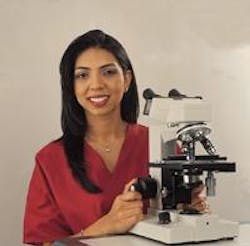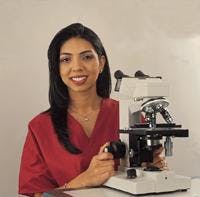Reader's Forum
In the audience
Dear RDH:
I recently returned from RDH Under One Roof in Las Vegas. Thank you, it was great. However, I am from Alabama and I feel like during one of the sessions I was degraded to the lowest possible place. I'm sure you know which session I am talking about — Anne Guignon's. I have read her articles in RDH, and I am well aware of her feelings as well as those of other two- and four-year graduates of hygiene. But I paid the same price each of them paid for the conference in hopes to coming home with things to make me a better hygienist. I hoped that since you knew there were Alabama hygienists registered for the conference, so would your speakers and they would hold down the tongue-lashings.
I do understand the feelings of anger for Alabama hygienists having RDH behind our names, but you must understand that we have to go through difficult tests and very long study sessions for one year, after working as a full-time assistant for one year. We are required to see a certain number of patients per month and be checked off on certain procedures each month. Our boards consist of a written exam as well as clinicals where we are responsible for finding our own board patient who has to meet certain guidelines. If we get to our clinical and the patient does not pass the strenuous guidelines, we fail!
Most of us (not all) work very hard for our license just like you. I am sure some people get lucky and pass just like in the two- and four-year programs. But that is the case with any profession. If they ever decide to change Alabama from RDH to LDH (licensed dental hygienist) I will be just as proud of my profession and will work as hard as I do now to improve the oral and overall health of the patients I work with.
By the way, what about the states that do not require any continuing education? How in the world can a hygienist who finished hygiene school 10, 15, or 20 years ago — who does not continue learning through continuing education — say she knows more than I do?
To close, just be sure if you are going to take the poor Alabamian's money for your conference, your rude and disrespectful speakers should know who we are and that we could be in their session.
Micki Knox, RDH
Alexander City, Alabama
Editor's note: As you observe above, some of the "anger" toward preceptorship precipitates RDH's writers and speakers to take strong stands against Alabama's ADHP program. However, that is no excuse for being a poor host, and we regret any statements that you felt belittled your efforts to provide patient care.
A word of praise
Dear RDH:
I would like to make reference to the Readers' Forum in the most recent issue of RDH concerning the ADHP. I am a recent licensed hygienist from that program and would like to rebut the comments made concerning the program.
The program seems to get such negative connotations that, for once, this hygienist would like to praise the program. First, it is hard for me to understand why someone would judge this program without first attending it. Has anyone looked into the criteria for this program and the demands made on the students? I have been in the dental field 13 years. I was 30 years of age when I became an assistant.
I am now in my 40s and decided that I would like to do the one final thing in the dental office that I had never done. That was to become a dental hygienist. So, I started the program in May of 2001 and finished in June 2002. This program was harder than the registered nursing program that I was in for one year at Samford University in Birmingham, Alabama, and two years at University For Women in Mississippi.
The demands of ADHP were rigorous. I was fortunate in that I had a great dentist to help me learn as I began to work on patients. I will add this: I am of the opinion that older students do put forth a lot more effort than those who are much younger and do not see this as a great opportunity. The program has some excellent professors teaching who were always available to help anyone or answer questions. I studied every day.
It was an opportunity for me to make a difference in the lives of people and their oral health. The lady from Kentucky mentioned how easy it was to pick out of the crowd who actually attended school. I take offense to that. I believe that what you put into a program — whether it is ADHP or college — is what you will get out of it.
The required hours of continuing education for Alabama is 12 hours a year. It is only April and I have already received 24 credit hours. It simply is important to continue to learn so that you may better help your patients care for their mouths. However, I do agree with her statement concerning the need for the students and the dentist to be monitored during the program. All would benefit from this addition to the program.
So, before anyone judges our program, please come and do what it requires to complete the program and then make your decision based on your experience.
Susan Rodgers, RDH
Birmingham, Alabama
The systemic connection can save lives
Dear RDH:
I was dismayed to read Dr. E.J. Neiburger's response in the March 2003 Readers' Forum to the article, "Periodontal Disease and Atherosclerosis" (January 2003 issue). We surely realize that patients who exhibit cardiovascular disease (CVD) and perio have numerous risk factors such as smoking, poor diet, etc. However, there is substantial data that correlates perio to many systemic pathologies including but not limited to: CVD, infective bacterial endocarditis (IBE), diabetes, and low-birth weight/premature babies. Periodontal disease manifests itself as a chronic immunoinflammatory response that causes our bodies to produce certain chemicals such as prostagladins and leukotrines, which have been proven to play a part in heart diseases and diabetes.
How can Dr. Neiburger be so simplistic as to deduce from "invalid" studies that anyone in dentistry is trying to "promote dentistry and hygiene" by using so-called "bad data?" I do not think we know enough about all diseases' inter-relationships to confirm whether or not the proverbial egg came before the chicken. We must not forget that the mouth's blood supply is connected to the rest of the body.
As health care professionals, we should be concerned about the whole patient. Stating that a correlation or link exists between perio, smoking, CVD, diabetes, IBE, low-birth weight babies, etc. is not only good dentistry, but is imperative to patient education by all hygienists. Who knows? We may actually motivate someone to modify his behavior and thus, indirectly, save his life!
Misty F. Perkins, RDH, BS
Natchitoches, Louisiana
• Mail — P.O. Box 3408, Tulsa, OK 74101
• E-mail — [email protected]
• Fax — (918) 831-9804
Besides a "signature," letters also must indicate the city and state where the writer resides or practices.
About the coverSaima Haroon, 25, has been practicing for more than four years after being the youngest graduate at age 21 in her class at University of Texas Health Science Center — Dental Branch in Houston in 1999.
Born in Pakistan, her family relocated to Houston when she was two-years-old. She visited her native country in 1996.
Haroon works in a private practice with Dr. Tommy Baugh. The practice was recognized by the Greater Houston Dental Society in 2001 for a charity program the office conducts during the winter holiday season.
"Our office holds a charity called Friends for Christmas, where we buy Chirstmas gifts and turkey dinners and donate them to needy families in Houston," Haroon said. "In 2001, we were able to help 50 families in need."
Haroon also volunteers at M.D. Anderson Cancer Hospital. She was motivated to do so by her own dental patients. "I am very interested in the etiology and treatment of cancer," she said. "I became very interested when many of my patients were diagnosed with oral cancer, breat cancer or cervical cancer.
"I love hygiene. I truly love to help not only my patients, but other people as well."
In her spare time, Haroon runs and lifts weights, and enjoys watching basketball games.

